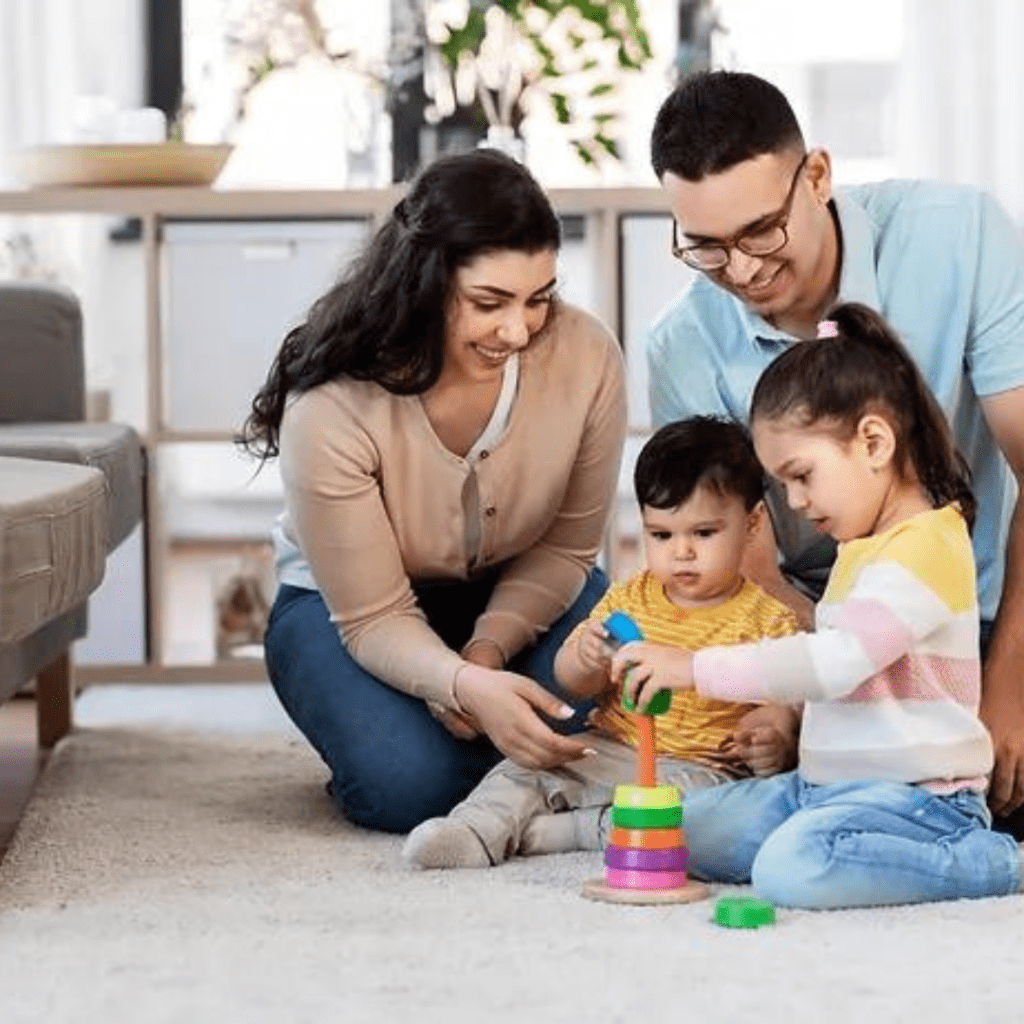DEVELOPMENT SCREENING
Developmental screening is a brief testing procedure designed to identify children who should receive more intensive diagnosis or assessment. Screening refers to the detection of unsuspected deviations from normal development that would not otherwise be identified in routine pediatric practice. The goal of screening is to identify, as early as possible, developmental disabilities in children at high risk so that a treatment or remediation can be initiated at an early age when it is most effective.
Developmental monitoring observes how your child grows and changes over time and whether your child meets the typical developmental milestones in playing, learning, speaking, behaving, and moving. Parents, grandparents, early childhood providers, and other caregivers can participate in developmental monitoring. You can use a brief checklist of milestones to see how your child is developing. If you notice that your child is not meeting milestones, talk with your doctor or nurse about your concerns.

On choosing this service, the doctor will ask you questions about your child’s development or assess the child see if he or she is developing and meeting milestones. A missed milestone could be a sign of a problem, so the doctor will take a closer look by using a more thorough test or exam.
The importance of early diagnosis and treatment of children with developmental delay has emerged in recent years as a matter of growing concern among pediatricians. Early identification of children with delayed development has important implications for their treatment and in preventing risks of future disabilities and secondary problems related to family dysfunction, peer difficulties, and school failure.
PS: If there is a suspected developmental disorder after developmental screening, your child will be referred to a developmental pediatrician nearest to your locality for further diagnosis and managment.

 Joelamirtharaj2023-11-25As a parent we express our sincere gratitude for the exceptional care and support Dr.Agila have provided to our daughter.Dr dedication and expertise have made a significant impact on her well-being, and we feel fortunate to have Dr as my daughter’s paediatrician. Dr.Agila’s compassionate approach and thorough understanding of paediatric healthcare have not only reassured us as parent but have also created a positive and trusting environment for our daughter.Our Doctor ability to communicate complex medical information in a clear and empathetic manner has been invaluable to us. Thank you, Dr.Agila Asokan, for your unwavering dedication to the well-being of our daughter. Your kindness and expertise have made a positive difference in our lives, and we are grateful to have you as part of my Daughter thiyana’s's healthcare.
Joelamirtharaj2023-11-25As a parent we express our sincere gratitude for the exceptional care and support Dr.Agila have provided to our daughter.Dr dedication and expertise have made a significant impact on her well-being, and we feel fortunate to have Dr as my daughter’s paediatrician. Dr.Agila’s compassionate approach and thorough understanding of paediatric healthcare have not only reassured us as parent but have also created a positive and trusting environment for our daughter.Our Doctor ability to communicate complex medical information in a clear and empathetic manner has been invaluable to us. Thank you, Dr.Agila Asokan, for your unwavering dedication to the well-being of our daughter. Your kindness and expertise have made a positive difference in our lives, and we are grateful to have you as part of my Daughter thiyana’s's healthcare. Sheeba Persis M2023-11-25
Sheeba Persis M2023-11-25 Preetha Prabu2023-08-06One of the best pediatric doctor.. My baby had no breathing at birth They treated my baby and gave me back my baby
Preetha Prabu2023-08-06One of the best pediatric doctor.. My baby had no breathing at birth They treated my baby and gave me back my baby
Research is finding that too much screen time for very young children can be harmful to their developing brains. It can negatively affect their concentration, language development and how well they interact with other people, and it has been linked to sleep difficulties. These things can all contribute to challenging behaviour. The American Academy of Pediatrics recommends that: children under 18 months should avoid screen time, other than video-chatting; children aged 18 months to two years can watch or use high-quality programs or apps if adults watch or play with them to help them understand what they’re seeing; children aged two to five years should have no more than one hour of screen time a day, with adults watching or playing with them.
Often when young children misbehave, what they need is help from their parent or caregiver to calm down. Time-out should be used as a technique to offer your child some ‘down time’ and should not be used as a punishment to make the child suffer. Time-out works best when used for short periods (maximum of one minute per year of age) and immediately after an inappropriate behaviour occurs. Sending children away or isolating them for long periods can cause greater distress, and may be unhelpful.
All young children have a limited attention span and sometimes do things without thinking, but only a small number of children have ADHD. The symptoms of ADHD include inattention (e.g. difficulty concentrating), impulsivity (e.g. acting without thinking) and overactivity (e.g. constant fidgeting). All of these behaviours are very common in most toddlers and many pre-schoolers. If your child has more than one of the symptoms of ADHD and the symptoms have been ongoing for more than six months, you could consider consulting us for developmental scrrening to discuss your concerns.
Recommended developmental and behavioral screening for all children during regular well-child visits at these ages: 9 months. 18 months. 30 months.
